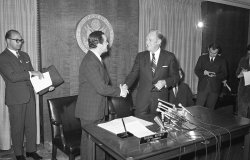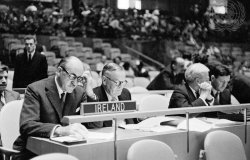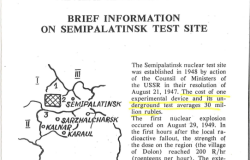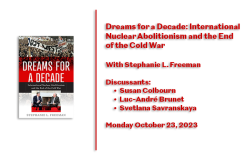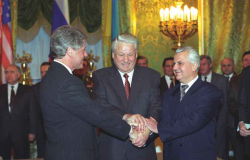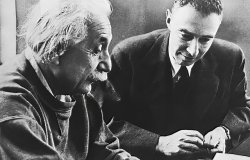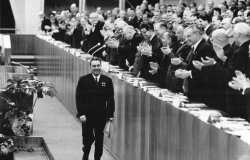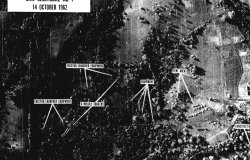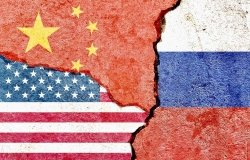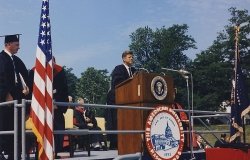Retrospective Illusions? Nuclear Lessons from French Memory
In this presentation, Benoit Pelopidas argues that the French understanding of the outcome of the Cuban missile crisis as a diplomatic victory rather than a result of good fortune could lead to an overconfidence in nuclear safety and security in France. Beyond the French example, Dr. Pelopidas’ analysis unveils the ways in which collective memory can create retrospective illusions of nuclear safety and security.
Overview
Retrospective Illusions?
Lessons on Nuclear Security from the French memory of the Cuban Missile Crisis
In this presentation, Benoît Pelopidas analyses the contemporary memory of the Cuban missile crisis in France in light of the growing consensus that the absence of use of nuclear weapons during the crisis is due to luck or good fortune. Dr. Pelopidas identifies three types of evidence supporting the case for luck: the lack of or false information given to decision-makers, the limits of safety of the weapons involved, and the limits of presidential control over the weapons during the crisis. He argues that the French memory of the crisis is at odds with this consensus and does not lead to policy recommendations in line with it.
Using archival research, oral history interviews, and under exploited French publications, Pelopidas argues that the disconnect between recent scholarship and French memory of the events is based on three main factors: a very specific and to-date undocumented experience of the crisis in France, a possible distortion of De Gaulle’s words during and after the crisis, and very limited engagement with this scholarship by scholars writing in French.
If one accepts that the crisis is one of a few moments when the world stood on the precipice of nuclear war, understanding the outcome as a victory of skilful coercive diplomacy or an underestimation of nuclear risk rather than the product of chance might lead to overconfidence in nuclear safety and security in France. Beyond the crisis itself, Dr. Pelopidas’ analysis offers lessons to better understand how readings of and lessons learned from critical events in the nuclear age can create retrospective illusions of nuclear safety and security.
The presentaiton will be followd by commentary by Garret Martin and a moderated discussion chaired by Christian F. Ostermann.
If you have questions regarding this event, please contact Evan Pikulski at Evan.Pikulski@wilsoncenter.org or 202-691-4166
Speakers
Benoît Pelopidas
Garret Martin

Christian F. Ostermann
Woodrow Wilson Center
Hosted By

Nuclear Proliferation International History Project
The Nuclear Proliferation International History Project is a global network of individuals and institutions engaged in the study of international nuclear history through archival documents, oral history interviews, and other empirical sources. At the Wilson Center, it is part of the Wilson Center's History and Public Policy Program. Read more
Thank you for your interest in this event. Please send any feedback or questions to our Events staff.
